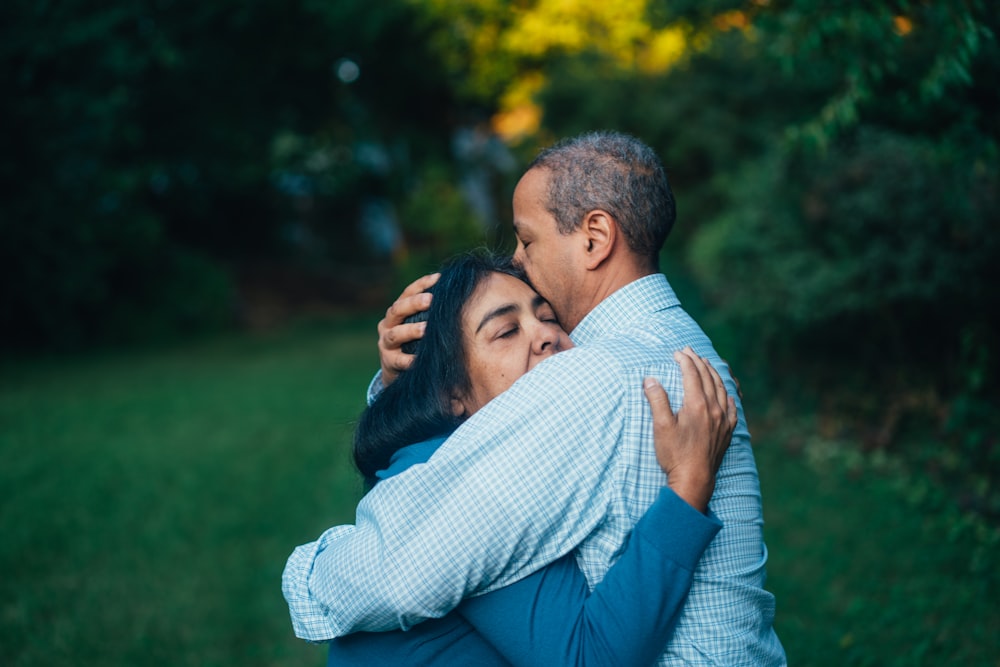Cover photo courtesy of Courtney Arredondo
Written by Aubrey-Dawn Palmer
Most of us love kissing our partners. It can be fun or sexy, romantic or playful, or a million other things. Beyond that, tons of research has shown that kissing your partner has many benefits and is extremely healthy (Busby et al., 2020; Santos-Longhurst, 2018; Kulibert et al., 2019; Fisher et al., 2015)
Biological Benefits
First, kissing has three major biological functions: 1) it helps us assess how suitable a mate is, 2) it arouses us, 3) it prepares the body and mind for sexual intimacy (Busby et al., 2020).
Kissing increases semiochemicals (pheromones) which aid in bonding. Most pheromones are detected by smell, but some of the strongest ones are located on the lips and other erogenous zones.

As if that weren’t enough, research has shown that making out with your partner boosts your metabolism and immune system, can lower your cholesterol, and can even heal your DNA for up to a minute after a good makeout session. Kissing also significantly lowers stress, which is linked to digestive and cardiovascular health, headaches, and fertility, to name only a few. On top of that, passionate kissing burns an average of 6.4 calories per minute. If you make out for 30 minutes, that’s 192 calories (Santos-Longhurst, 2018).
While you probably ought to kiss your partner for love, not just to boost your metabolism or lower your cholesterol, it is just one way science proves the importance of healthy romantic relationships.
Here’s where it becomes even more interesting. These benefits are most powerful in monogamous relationships (Kulibert et al., 2019). In other words, kissing your partner is biologically much healthier than kissing anyone with a nice pair of lips.

Relationship Benefits
Mostly, kissing is an incredibly important part of emotional and physical intimacy. If you are having trouble connecting emotionally or physically, kissing more often is one way to improve your relationship (Busby et al., 2020).
Many people report that kissing more frequently outside of a sexual context leads to higher relationship satisfaction, and sexual satisfaction. And kissing your partner as a greeting and a farewell is also important.
Kissing increases the production of oxytocin and dopamine – the chemicals that make you happy and all warm and fuzzy inside (Buehler, 2014). This helps you bond to your partner. It produces emotional attachment. Both the majority of men and women report that kissing is the highest expression of love. I mentioned earlier that kisses can be fun, playful, sexy or romantic. Kisses are nonverbal messages to your partner, and the way you express love, in this way, as many others, drives the success of your relationship and the closeness you feel to one another.
What about the kids?
A little caveat here. In our teaching, my husband and I work with many kids who say they have never seen their parents kiss each other, and this breaks my heart. Your children may not need to see you make out, but it is important to be affectionate around your children. Children will practice in their own relationships what they see you doing. Kissing and being affectionate in front of your children teaches them that marriages can be fulfilling and loving, not the ball-and-chain entrapment Hollywood makes them out to be. Kiss in front of them. It is important for children to see that their parents love each other. This reinforces that you are a team.
 1. Please go make out with your partner!
1. Please go make out with your partner!
2. Increase the frequency of non-sexual romantic kissing throughout your day.
References
Buehler, S. (2014). Review of The heart of desire: Keys to the pleasures of love. Journal of Sex & Marital Therapy, 40(3), 255–256. https://doi-org.erl.lib.byu.edu/10.1080/0092623X.2014.894317
Busby, D. M., Hanna-Walker, V., & Leavitt, C. E. (2020). A kiss is not just a kiss: Kissing frequency, sexual quality, attachment, and sexual and relationship satisfaction. Sexual and Relationship Therapy. https://doi-org.erl.lib.byu.edu/10.1080/14681994.2020.1717460
Fisher, W. A., Donahue, K. L., Long, J. S., Heiman, J. R., Rosen, R. C., & Sand, M. S. (2015). Individual and partner correlates of sexual satisfaction and relationship happiness in midlife couples: Dyadic analysis of the international survey of relationships. Archives of Sexual Behavior, 44(6), 1609–1620. https://doi-org.erl.lib.byu.edu/10.1007/s10508-014-0426-8
Kulibert, D. J., Moore, E. A., Dertinger, M. M., & Thompson, A. E. (2019). Attached at the lips: The influence of romantic kissing motives and romantic attachment styles on relationship satisfaction. Interpersona: An International Journal on Personal Relationships, 13(1), 14–30. https://doi-org.erl.lib.byu.edu/10.5964/ijpr.v13i1.324
Santos-Longhurst, A. (2018, July 13). 16 reasons to kiss. Healthline. https://www.healthline.com/health/benefits-of-kissing
 Aubrey-Dawn Palmer was born and raised in Farmington, New Mexico, and she has a bachelor’s degree in family studies from Brigham Young University. She has two younger brothers and is married to her best friend, Richard. In addition to her research on relationships, human attachment, and healthy sexuality, Aubrey-Dawn volunteers with her husband as a teacher for the Strengthening Families Program, is a research director for a counseling center, and works as a home counselor at a residential treatment center.
Aubrey-Dawn Palmer was born and raised in Farmington, New Mexico, and she has a bachelor’s degree in family studies from Brigham Young University. She has two younger brothers and is married to her best friend, Richard. In addition to her research on relationships, human attachment, and healthy sexuality, Aubrey-Dawn volunteers with her husband as a teacher for the Strengthening Families Program, is a research director for a counseling center, and works as a home counselor at a residential treatment center.







 Rian Nicole Gordon is from Orem, Utah, and graduated from Brigham Young University with a Bachelor of Science in Family Life and Human Development. She has been married to her best friend Mark for five years, and they have two beautiful children, one boy and one girl. Apart from her full-time job as a stay-at-home mom, she works for The Dibble Institute, which specializes in relationship education for youth.
Rian Nicole Gordon is from Orem, Utah, and graduated from Brigham Young University with a Bachelor of Science in Family Life and Human Development. She has been married to her best friend Mark for five years, and they have two beautiful children, one boy and one girl. Apart from her full-time job as a stay-at-home mom, she works for The Dibble Institute, which specializes in relationship education for youth.















